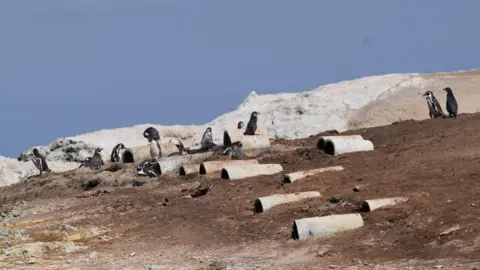A Hull aquarist has travelled to South America to help protect penguins.
Lloyd Wilkinson, penguin-keeper at The Deep aquarium in Hull, went to Punta San Juan in Peru to take part in conservation work.
This 133-acre peninsula is home to the largest colony of Humboldt penguins in the country and one of the 10 most important breeding sites for guano birds.
“It was an experience for the senses,” Mr Wilkinson said. “The air itself was thick with the smell of guano before I even entered the reserve.”
He added: “The landscape was similar to a moon or an alien planet and there was a constant background noise from the seal colonies.”

In his day job, Mr Wilkinson looks after a colony of gentoo penguins at The Deep. In the wild, gentoos live primarily around Antarctica and islands such as the Falklands and South Georgia.
Humboldt penguins live further to the north, with Punta San Juan being part of the Peruvian Guano Islands, Isles and Capes National Reserve.
As part of a conservation programme, volunteers have been carrying out research and monitoring work to help protect wildlife.
Mr Wilkinson said he had been tracking penguin routes between land and sea, as well as assessing the impacts of the harvesting of guano – an accumulation of dried bird faeces.
“What struck me most during my time at Punta San Juan was how forward-thinking this project is and how passionate the team behind it are,” Mr Wilkinson said.
“With the right strategies, we don’t have to choose between agriculture and wildlife.”

